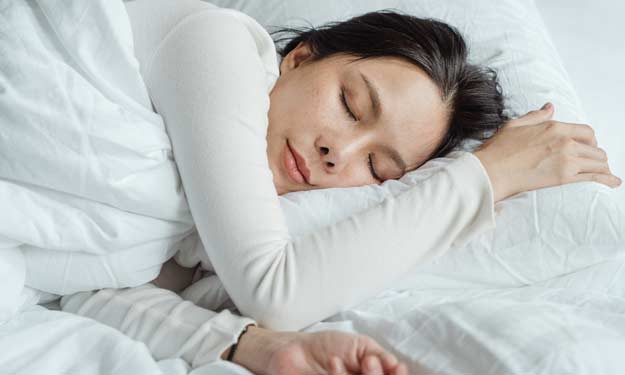Lack of Sleep and Anxiety
Many people find themselves caught in a frustrating cycle where anxiety prevents sleep, and then lack of sleep increases anxiety. This common struggle affects millions of adults; if you've experienced it, you are far from alone. Whether it's a racing mind at bedtime, waking in the middle of the night, or early morning restlessness, the connection between anxiety and poor sleep is strong and well-documented.
According to the National Institutes of Health, over 40 million Americans suffer from chronic sleep disorders, and many of those are rooted in anxiety. The good news is that several natural and over-the-counter remedies, lifestyle changes, and practical tips can help you reclaim restful sleep and manage anxious thoughts more effectively.
Common Causes of Anxiety-Induced Sleeplessness
Anxiety-related insomnia can come from many sources. Some people experience it after stressful events, while others live with generalized anxiety, panic attacks, or social phobias. Here are some typical contributors to anxiety-related sleep disruption:
- Financial worries and job stress
- Health concerns or fear of illness
- Trauma or post-traumatic stress disorder (PTSD)
- Obsessive thoughts or overthinking
- Relationship issues or family stress
- Depression or grief
These sources of anxiety can interfere with falling asleep, cause frequent awakenings during the night, or lead to early morning waking that leaves you unrested.
When to Seek Medical Advice
Natural remedies work best for occasional or mild insomnia. If you experience these symptoms, talk with your doctor or a sleep specialist. Cognitive Behavioral Therapy for Insomnia (CBT-I) is one of the most effective professional treatments for chronic sleep issues and anxiety-related insomnia.
- Sleep problems lasting longer than 3 weeks
- Snoring, choking, or gasping during sleep
- Persistent anxiety or depression symptoms
- Daytime drowsiness that affects your ability to function
Natural Remedies to Reduce Anxiety and Improve Sleep
It's not always easy to quiet an anxious mind, but better sleep is possible. By understanding your triggers, making small daily changes, and trying natural or OTC options thoughtfully, you can build habits that improve your sleep and well-being. Be patient with yourself and remember that consistency is the key to resetting your sleep cycle and easing nighttime anxiety.
There are many gentle, natural approaches that can ease anxiety and encourage deeper sleep. While results vary by individual, these are generally safe and effective when used as part of a nightly routine.
- Set a consistent sleep schedule: Go to bed and wake up at the same time every day, even on weekends. This helps reset your body's internal clock and reduces irregular sleep patterns caused by anxiety.
- Limit naps: Avoid daytime napping, especially in the afternoon. If you need to nap, limit it to 20–30 minutes before 3 p.m.
- Use your bedroom for sleep only: Keep work, screens, and distractions out of the bedroom. Your bed should signal rest.
- Create a calming environment: Use blackout curtains, eye masks, and white noise machines to make your space peaceful and comfortable. Keep the temperature cool and avoid bright lights or screens before bed.
Herbs and Supplements That Support Sleep
There are a variety of over-the-counter and herbal supplements that can be effective for improving sleep and reducing anxiety. Always check with your healthcare provider before adding new supplements to your routine.
- Melatonin: A hormone your body produces naturally to regulate the sleep-wake cycle. Supplementing with melatonin can help if your schedule is off or if you're experiencing occasional insomnia. Use 0.5 to 3 mg about 30 minutes before bedtime.
- Valerian Root: This herbal supplement has a long history of use for anxiety and insomnia. It acts as a mild sedative and may take a few days to build effectiveness.
- Magnesium: A mineral that supports muscle relaxation and nervous system function. Low magnesium levels are linked with sleep difficulty. Foods rich in magnesium include almonds, leafy greens, and bananas. Magnesium glycinate or citrate are preferred forms for supplementation.
- Ashwagandha: An adaptogenic herb that supports stress resilience and reduces cortisol levels, which may improve both anxiety and sleep quality.
- L-theanine: An amino acid found in green tea that promotes relaxation without drowsiness. It can be taken alone or with melatonin in combination sleep formulas.
- GABA (Gamma-aminobutyric acid): A neurotransmitter that calms the nervous system. Available in supplement form, it may help reduce anxious thoughts at bedtime.
Relaxation Techniques Before Bed
- Meditation and breathwork: Try breathing deeply and slowly while visualizing a peaceful scene. Apps like Calm or Insight Timer offer guided meditations specifically for sleep.
- Progressive muscle relaxation: Tense and then slowly release each muscle group in your body from head to toe. This helps release the physical tension that has built up during the day.
- Journaling: Writing down your worries, to-do list, or affirmations before bed can help clear your mind and reduce mental clutter.
Other Strategies That Help
- Daily exercise: Movement helps regulate your nervous system and supports deeper sleep. Aim to finish workouts at least 2–3 hours before bedtime to avoid overstimulation.
- Limit caffeine and alcohol: Caffeine can linger in your system for up to 10 hours. Alcohol may help you fall asleep, but it often disrupts sleep cycles later in the night. Avoid both in the evening.
- Warm baths or showers: Soaking in warm water before bed can reduce core body temperature afterward, signaling to your brain that it's time to sleep.
- Aromatherapy: Diffuse calming essential oils like lavender, frankincense, bergamot, or cedarwood. You can also apply diluted oils to your wrists or temples.
First Aid for Sleepless Nights
If you're in bed and can't sleep after 20–30 minutes, don't lie there worrying. Get up and go to another room with low light. Try stretching, reading, or drinking herbal tea. Avoid screens or anything that makes you more alert.
Don't watch the clock. Instead, focus on calming your body and mind. Once you feel drowsy again, return to bed.


